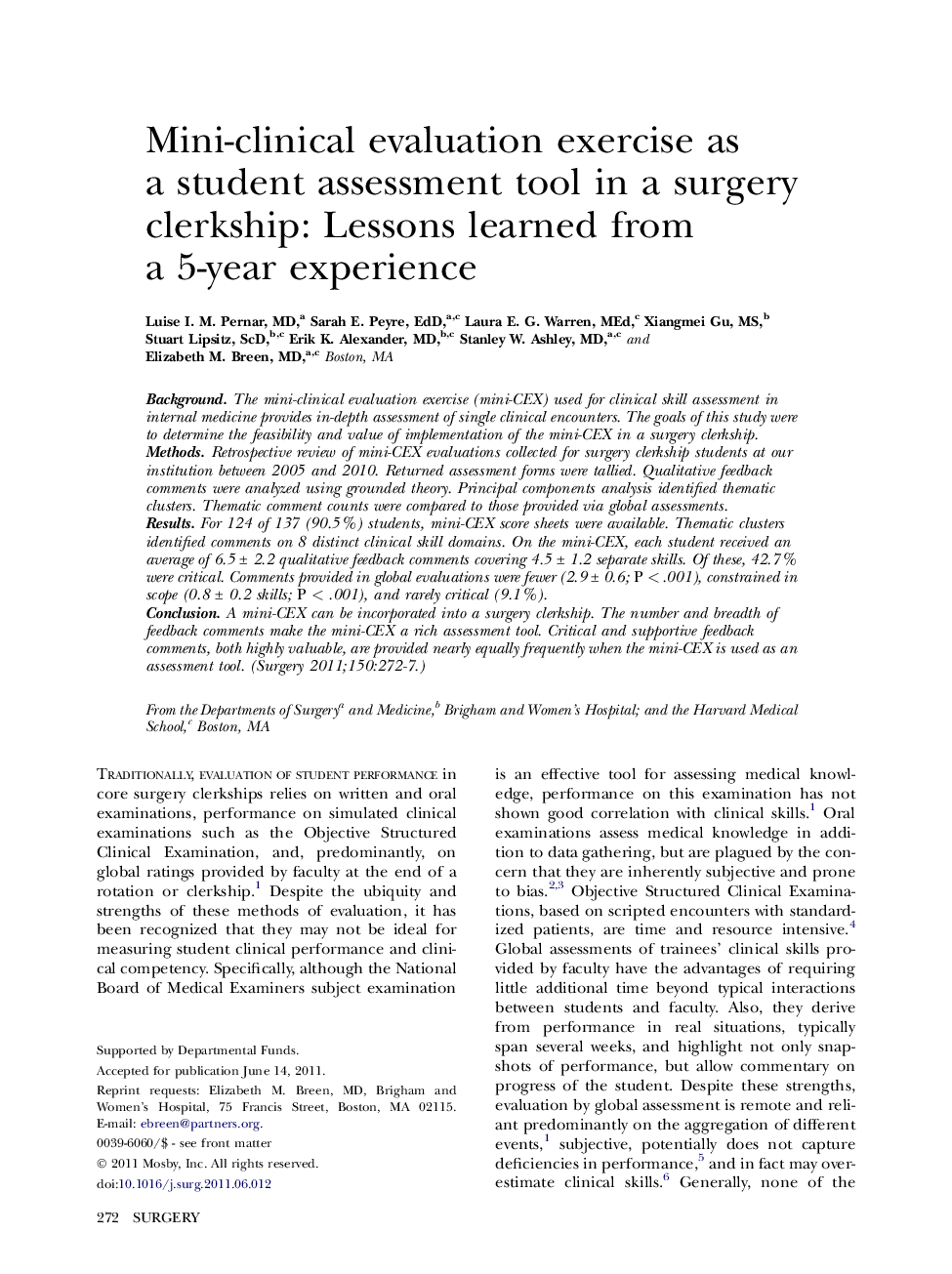| کد مقاله | کد نشریه | سال انتشار | مقاله انگلیسی | نسخه تمام متن |
|---|---|---|---|---|
| 4308809 | 1289291 | 2011 | 6 صفحه PDF | دانلود رایگان |

BackgroundThe mini-clinical evaluation exercise (mini-CEX) used for clinical skill assessment in internal medicine provides in-depth assessment of single clinical encounters. The goals of this study were to determine the feasibility and value of implementation of the mini-CEX in a surgery clerkship.MethodsRetrospective review of mini-CEX evaluations collected for surgery clerkship students at our institution between 2005 and 2010. Returned assessment forms were tallied. Qualitative feedback comments were analyzed using grounded theory. Principal components analysis identified thematic clusters. Thematic comment counts were compared to those provided via global assessments.ResultsFor 124 of 137 (90.5%) students, mini-CEX score sheets were available. Thematic clusters identified comments on 8 distinct clinical skill domains. On the mini-CEX, each student received an average of 6.5 ± 2.2 qualitative feedback comments covering 4.5 ± 1.2 separate skills. Of these, 42.7% were critical. Comments provided in global evaluations were fewer (2.9 ± 0.6; P < .001), constrained in scope (0.8 ± 0.2 skills; P < .001), and rarely critical (9.1%).ConclusionA mini-CEX can be incorporated into a surgery clerkship. The number and breadth of feedback comments make the mini-CEX a rich assessment tool. Critical and supportive feedback comments, both highly valuable, are provided nearly equally frequently when the mini-CEX is used as an assessment tool.
Journal: Surgery - Volume 150, Issue 2, August 2011, Pages 272–277